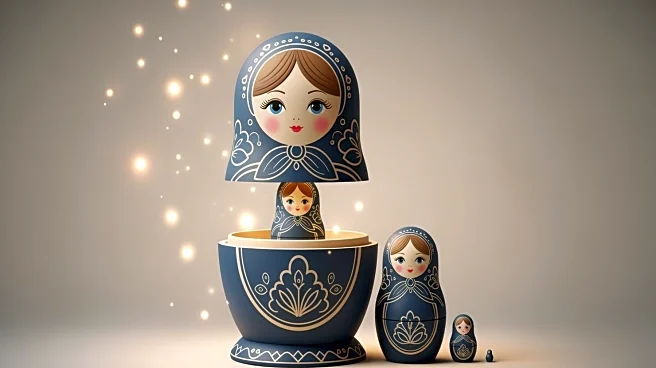What's Happening?
Russia is facing a significant demographic challenge as its population continues to decline. President Vladimir Putin has introduced several initiatives to encourage childbirth and reverse this trend.
These measures include financial incentives for large families, reinstating Soviet-era 'hero-mother' medals, and promoting traditional family values. Despite these efforts, Russia's birthrate remains low, with deaths outpacing births. The country's population has decreased from 147.6 million in 1990 to 146.1 million in 2025. Economic uncertainty, the war in Ukraine, and a shrinking pool of potential parents contribute to the demographic crisis. Additionally, restrictive laws on abortion and LGBTQ+ activism aim to promote traditional family structures.
Why It's Important?
The declining population poses a significant challenge to Russia's economic and national security. A shrinking workforce could hinder economic growth and strain social services. Putin's focus on traditional family values and financial incentives reflects an attempt to address these issues, but the effectiveness of such measures remains uncertain. The demographic crisis also highlights broader societal issues, such as economic instability and restrictive social policies, which may deter young couples from having children. The situation in Russia serves as a case study for other nations facing similar demographic challenges, emphasizing the need for comprehensive and inclusive policies to support population growth.
What's Next?
Russia's government may continue to implement and adjust policies to encourage population growth. However, the ongoing war in Ukraine and economic challenges could undermine these efforts. The international community will likely monitor Russia's demographic strategies, as they may influence global discussions on population management. Additionally, the impact of restrictive social policies on human rights and individual freedoms could draw criticism and affect Russia's international relations.
Beyond the Headlines
The emphasis on traditional family values and restrictive social policies raises ethical and cultural questions about individual freedoms and gender roles. The government's approach may reinforce traditional gender norms, potentially limiting women's autonomy and career opportunities. Furthermore, the focus on increasing birthrates through financial incentives and social pressure could lead to unintended consequences, such as increased economic strain on families and social inequality.










